Sooner or later, every pet owner will find tiny bugs crawling on their pet’s skin. But are they fleas or cat lice? It can be hard to tell the difference between the two small pests.
Therefore, this article will teach you everything that you need to know about cat lice and fleas. With either one, an infestation on your cat is an issue that needs to be taken care of to get your pet back to optimal health.

Visual Differences
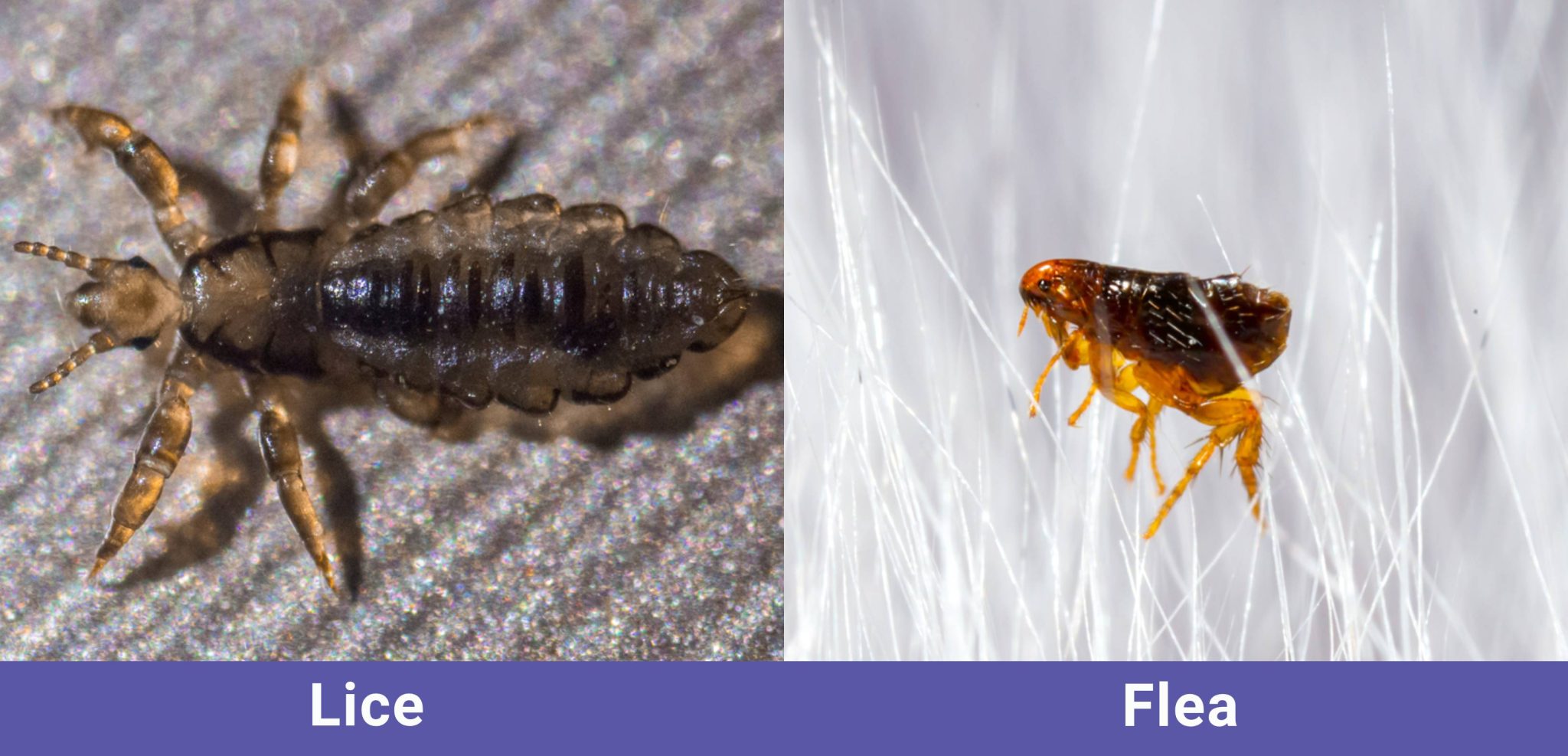
At a Glance
- Size: 1–2 mm
- Lifespan: 1–2 days without a host, 4 weeks total
- Body Shape: Oval
- Size: 1.5–4 mm
- Lifespan: 12–14 days, up to 350 days
- Body Shape: Flattened oval

Cat Lice Overview
Cat lice are small flightless insects. They live on the hair or feathers of animals and people. There are a few different types of lice, but the cat louse (Felicola subrostrata) is similar to the one that humans can get. Cat lice chew and bite and are usually seen on older cats with longer hair. Poor grooming habits increase your cat’s chance of contracting them.
Cat lice prefer to live in environments where they have access to skin and hair. They move from host to host through direct contact. They are more common in the colder months, and their numbers dwindle during the summer.
Cat lice have claws on their legs that help them cling to the hair. The females glue their eggs to the host’s hair close to the skin, and regular shampooing will not remove the eggs. It takes roughly 3 to 4 weeks for eggs to mature into adults.
Signs
Your cat might not seem too agitated if they have lice. Because of this, it can sometimes be hard to diagnose the problem on your own. A heavy lice infestation could make your cat look scruffy and unkempt. They might also experience excessive scratching that leads to raw and bald patches. You might notice small white dots, or eggs, on the fur.
Treatment
You will not be able to treat cat lice with home remedies or store-bought solutions. Getting rid of cat lice requires a trip to the vet for prescription topical preventions that are effective at killing lice. Don’t forget that you will need to wash all soft objects in hot water to kill any eggs lingering around the house. Fortunately, with the widespread use of monthly flea-and-tick preventions, lice infestations are now fairly rare in cats and dogs.
If you need to speak with a vet but can't get to one, head over to PangoVet. It's an online service where you can talk to a vet online and get the advice you need for your pet — all at an affordable price!

Fleas Overview
Fleas are small, wingless insects. They feed on animal blood and aside from being a nuisance, can transmit diseases and cause allergies and anemia. There are over 2,200 flea species around the world. The two most common types are the cat flea (Ctenocephalides felis) and the dog flea (Ctenocephalides canis).
Cat fleas start reproducing roughly 1 to 2 days after a blood meal. Once they’ve found a host, the females lay eggs while feeding on the surface of the cat’s skin. A single female flea can produce 50 eggs per day, or 2,000 in her lifetime.
Flea eggs are oval-shaped with a pearly white color. The eggs often drop onto bedding or carpeting and hatch within 1 to 6 days. Freshly hatched flea larvae are free-moving and feed on organic debris in their environment until they are fully developed and can find a host.
Signs
It can be a little hard to tell if your cat has fleas or not. Here are some of the most common signs that your cat has fleas:
- Increased scratching
- Bald spots or hair loss
- Skin irritation
- Excessive grooming
- Lethargy
- Pale gums
- Black specks in cat’s fur or bedding
Treatment
There are various ways to treat cats for fleas. Your vet will either give you a topical or internal application. Here are the most common types:
- Flea powders
- Flea sprays
- Flea collars
- Topical flea treatments
- Oral flea medication
That said, the most effective flea preventions and treatments are ones prescribed by your vet versus those available over the counter.

What Are the Differences Between Cat Lice and Fleas?
The biggest difference between cat lice and fleas is that lice burrow into parts of the body, while fleas are mainly on the surface. Fleas are able to jump higher and are much quicker than lice. Lice bites are much less painful than flea bites.
Lice and fleas are both small, wingless insects that consume blood from their hosts. Lice mainly live on hairy parts of the body, and fleas tend to stay in areas of warmth, like armpits and ears.
Fleas are larger than lice and have a much longer lifespan. While they are both oval-shaped, a flea has a flatter body and is a dark reddish-brown color rather than a gray color.
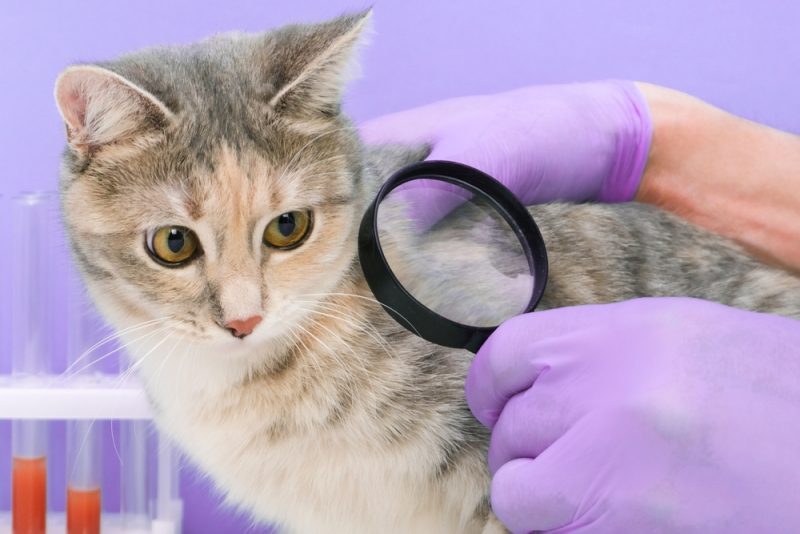

Final Thoughts
Trying to tell the difference between two tiny insects can be a challenge. But in the end, both cat lice and fleas can cause discomfort or be dangerous to your cat. Even if you can’t tell the difference between the two, you need to take your pet to the vet so they can get treated with proper medicines or ointments. The sooner you fix the problem, the sooner your feline friend will be back to feeling and looking their best.
See also:
Featured Image Credit: Left wimala namket, Shutterstock | Right – KanphotoSS, Shutterstock
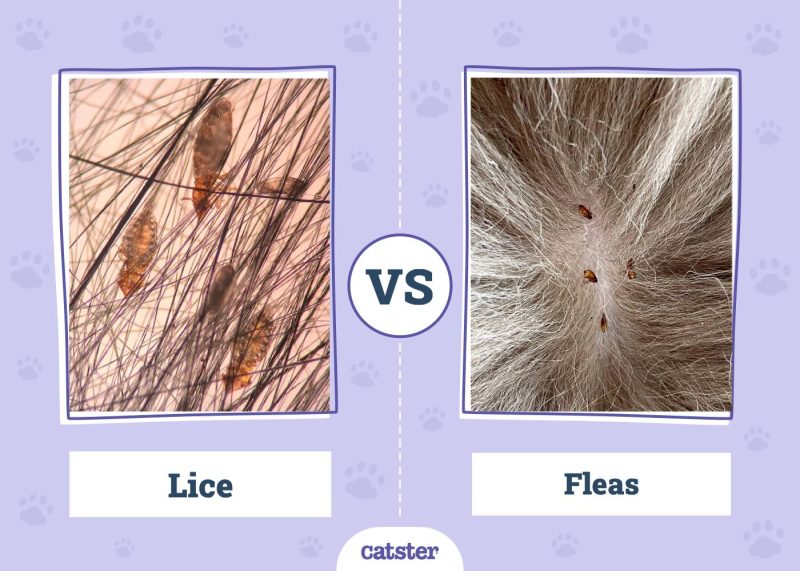



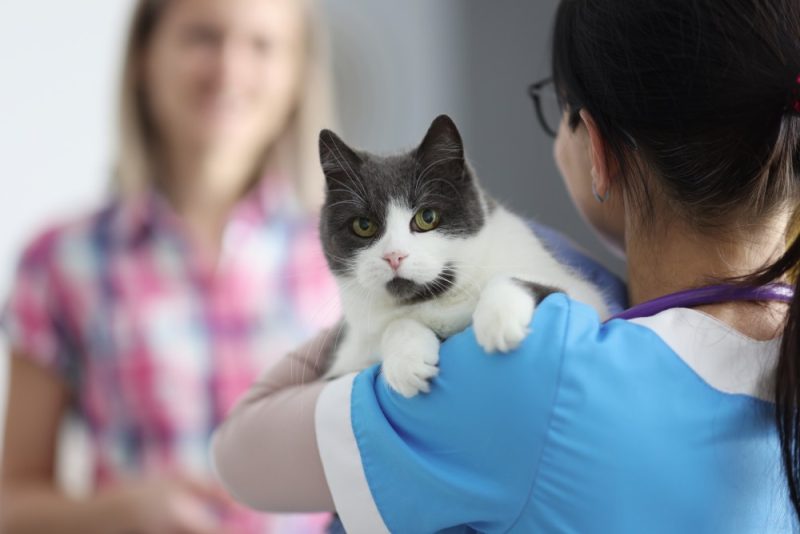


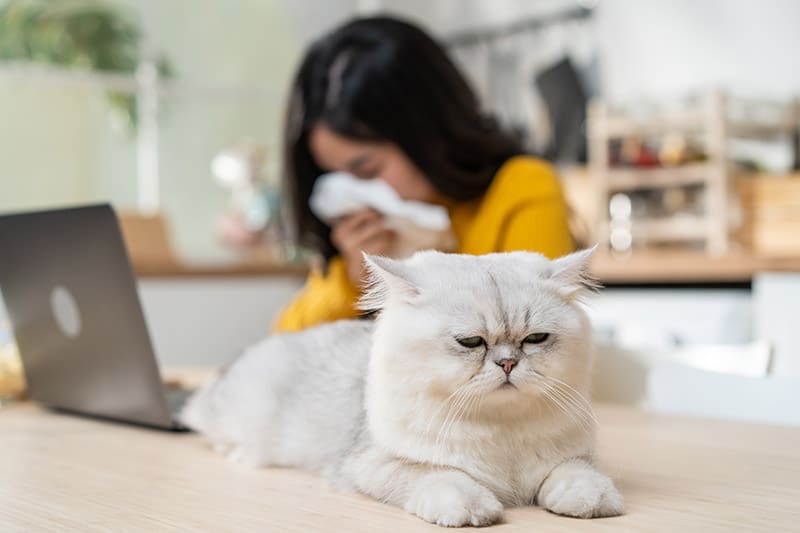

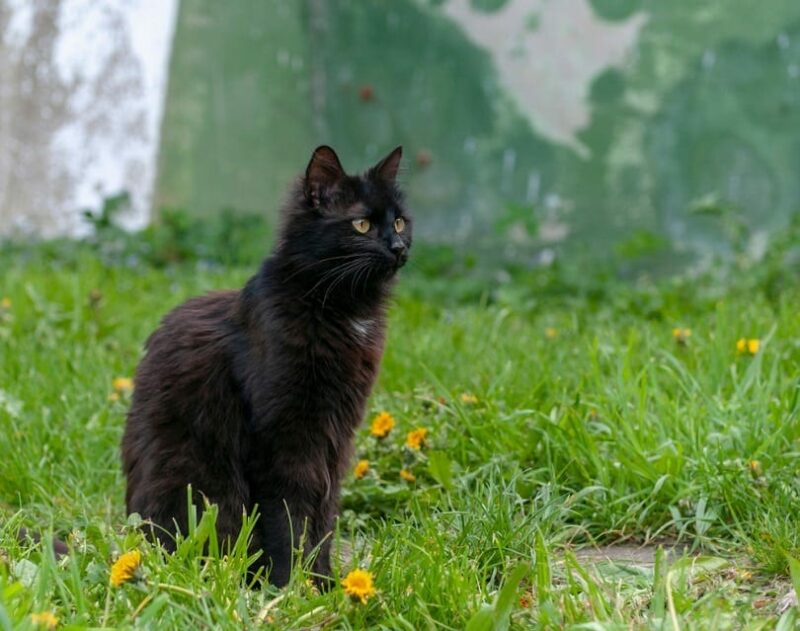
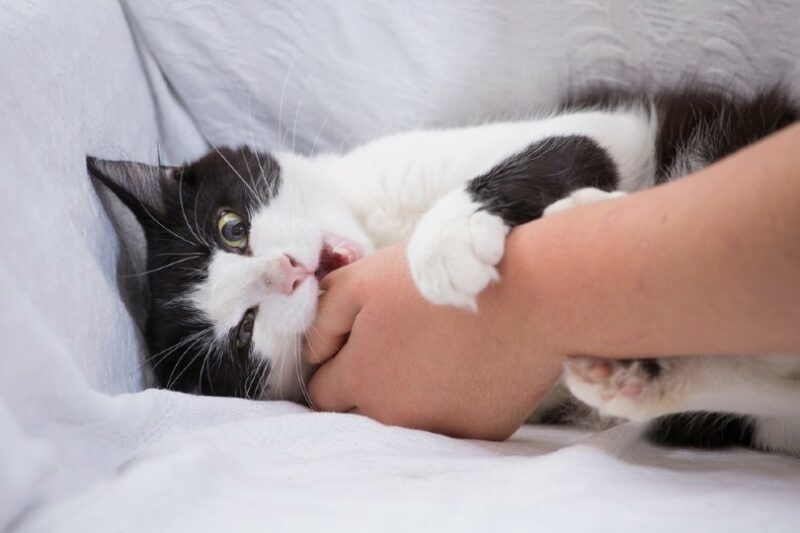

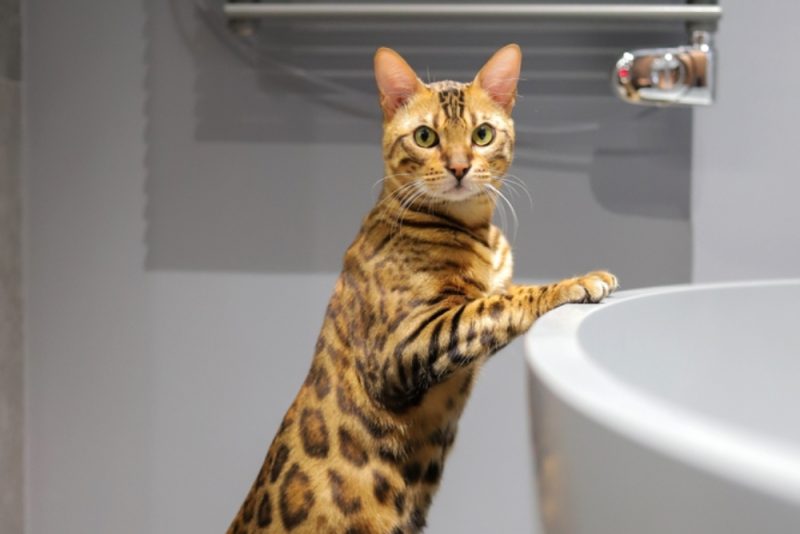
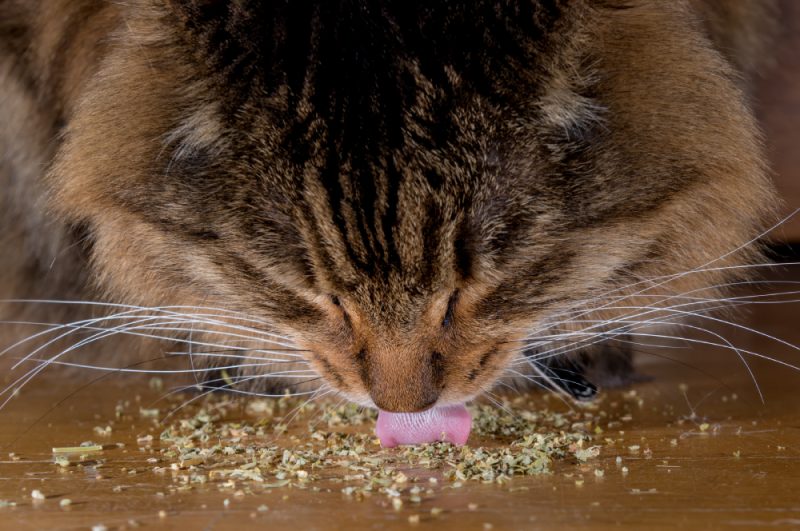
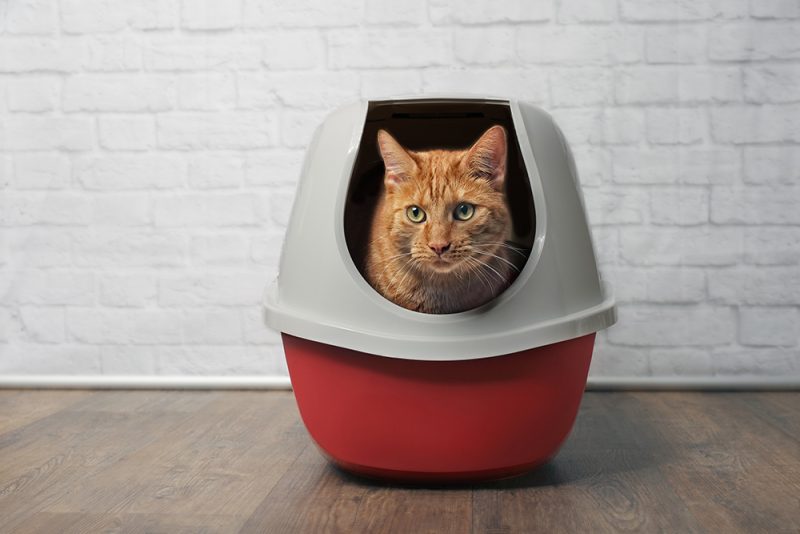

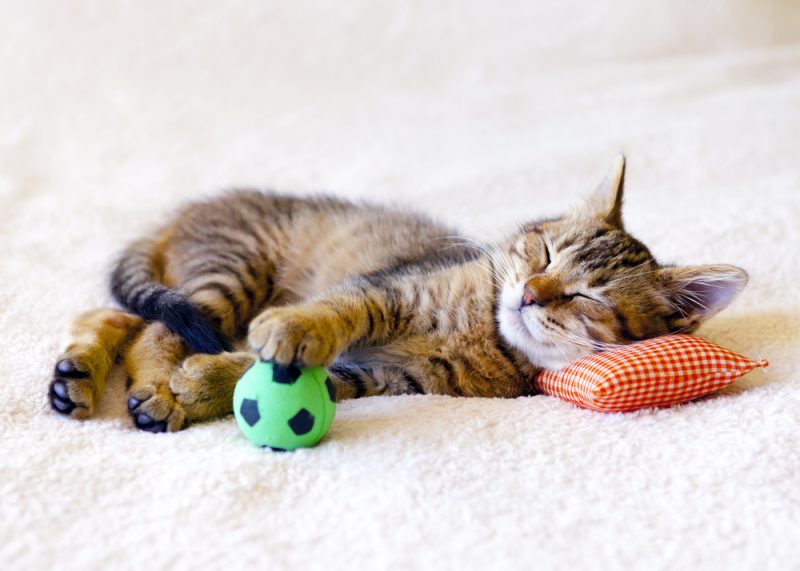
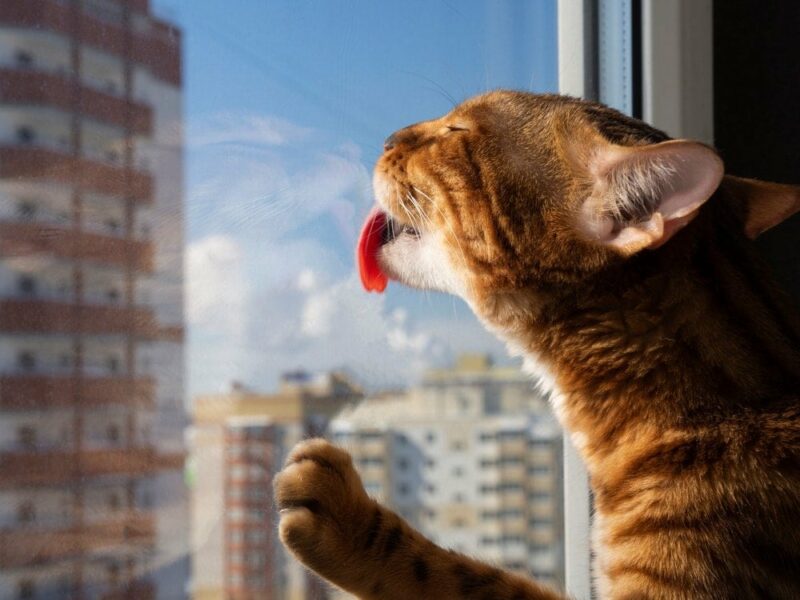
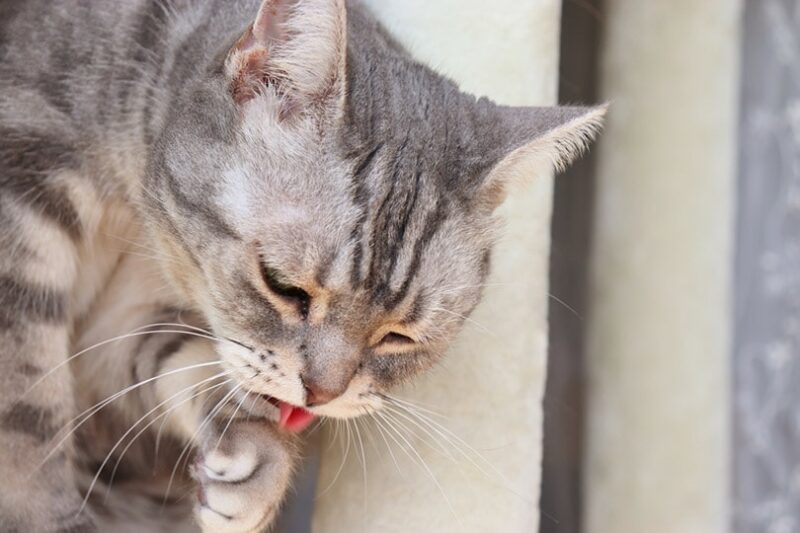
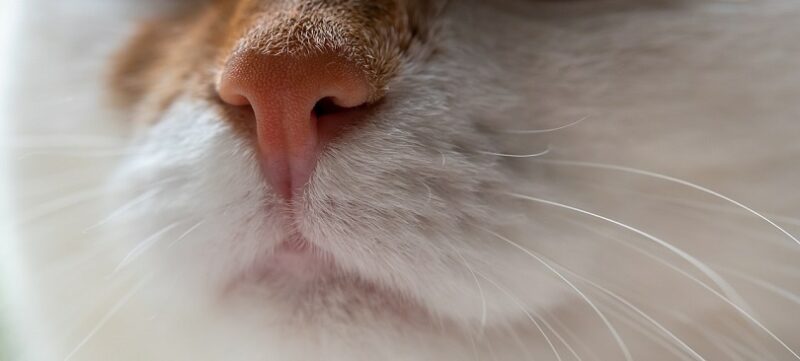



4 Responses
Thank you for your quick reply – problem is that I cannot afford vet fees.
You are welcome. You might find this post helpful: https://www.catster.com/cat-health-care/best-flea-treatments/
Good learning curve for me, thank you but still not sure if my cat has fleas or lice?
Guess the same expensive treatment?
Thanks, Alan.
Hi Alan, a vet can help you identify them, and they can also recommend a treatment, as not every medicine covers both parasites.